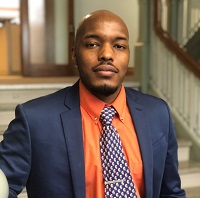 Brandon Allen
Brandon Allen
Director of Diversity and Culture of Inclusion, ASPIRE
Dr. Brandon Allen is an Assistant Research Professor in the School of Engineering Education at Purdue University where his work focuses on Equity, Broadening Participation in STEM, and working with Minority Serving Institutions. He is the Director of Diversity and Culture of Inclusion for the Advancing Sustainability through Powered Infrastructure for Roadway Electrification (ASPIRE) Engineering Research Center, a generation-4 National Science Foundation Engineering Research Center focus on an equitable and sustainable future Electrified Transportation System . Additionally, Dr. Allen leads the Equity Research Thrust for ASPIRE where he helps develop strategic research plans to address equitability in the pursuits of an electrified transportation system. Dr. Allen hosts k-12 and undergrad students for summer research opportunities to work with and on electric vehicles including dynamic wireless charging, charging station access, grid integration and more and has led mentoring programs to assist those in engineering disciplines. Dr. Allen has also developed curriculum to assist students in improving research practices, workforce development, and academic writing. Dr. Allen also teaches as an adjunct professor for the University of Oklahoma Master’s in Human Relations Program as part of the Diversity, Equity, and Strategic Impact Track where he teaches Program Training and Development, Policy, Programs and Practices; Strategies of Social Change, and the Summative Capstone Course. Dr. Allen received his bachelor’s degree from Virginia State University and his doctorate degree from Purdue University.
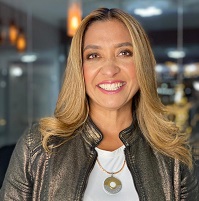 Gerri Botte
Gerri Botte
Center Director, CASFER
Gerardine (Gerri) Botte is a Professor and Whitacre Endowed Chair in Sustainable Energy at Texas Tech University and the Founding Director of the NSF Engineering Research Center for Advancing Sustainable and Distributed Fertilizer Production. Gerri has over 25 years of experience in the development of electrochemical processes as they related to the intersection of energy, water, and food sustainability. She is a visionary and a recognized leader in electrochemical science and technology, she is the President the Electrochemical Society, a member of the National Academy of Science of Venezuela, a Fellow of the Electrochemical Society, and a Fellow of the National Academy of Inventors. Dr. Botte has 221 publications including peer-reviewed journals, book chapters, 62 granted patents, and 37 pending patents. Dr. Botte and members of her research group are working on the foundation of applying electrochemical engineering principles for advanced and sustainable manufacturing, process intensification, food/energy/water sustainability, and nanomaterials with expertise in electro-synthesis, batteries, electrolyzers, sensors, fuel cells, mathematical modeling, and electro-catalysis. Dr. Botte is also an entrepreneur, she has been involved in the commercialization of technologies, has founded and co-founded companies, and serves as member of the board of directors in several companies. She received her Ph.D. in 2000 and M.E. in 1998, both in Chemical Engineering, from the University of South Carolina and her B.S. in Chemical Engineering from Universidad de Carabobo (Venezuela) in 1994.
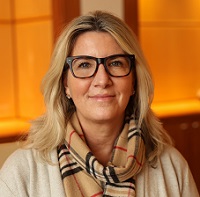 Cara Ellis McCarthy
Cara Ellis McCarthy
Admin Director, CELL-MET
Cara Ellis McCarthy is the Administrative Director for the Nanosystems Engineering Research Center for Directed Multiscale Assembly of Cellular Metamaterials with Nanoscale Precision: CELL-MET, which is based at Boston University with partners University of Michigan and Florida International University. CELL-MET, now in its 7th year, is managed administratively at BU in the Photonics Center, a University-wide interdisciplinary research center where Cara is the Executive Director. Cara has held previous roles at BU as the Assistant Vice President for Research Initiatives, Director of Finance and Administration, and Director of Academic Services bringing many years of experience in administration, operations, budgeting and finance to CELL-MET and to the ERC Biennial Planning Committee. She also earned her bachelor’s degree from BU in Political Science.
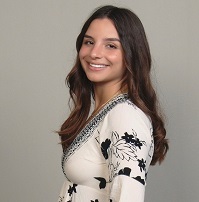 Anna Hampton
Anna Hampton
SLC President, IoT4Ag
Anna is a PhD student in the Department of Electrical and Computer Engineering at the University of Florida. With the guidance of Dr. Alina Zare, Anna develops machine learning models for nitrogen quantification in field grown crops with applications to crop fertilizer input reduction and models for stress detection in lab grown plants with applications to plant growth in space station environments. Her dissertation research aims to determine the effect of injecting available weak class information into deep learning based hyperspectral unmixing models with the objective being the extraction of class discriminative spectral endmembers. Being from Fort Lauderdale nestled between the Atlantic Ocean and the Everglades, Anna has witnessed first-hand the degradation of Florida’s waterways. Through collaborations with groups like the NSF Engineering Research Center for Internet of Things for Precision Agriculture, she has been able to pursue her goals of advancing sustainable practices in agriculture and reducing anthropogenic impacts on Florida’s waterways.
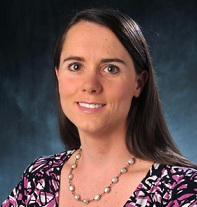 Beth Myers
Beth Myers
Evaluator, ASPIRE
Dr. Beth A. Myers leads assessment and evaluation for Advancing Sustainability through Powered Infrastructure for Roadway Electrification (ASPIRE), an NSF-funded Engineering Research Center (Utah State University) that focuses on the seamless integration of wireless and wired charging systems for electrified transportation. She is also external evaluator for an NSF S-STEM scholarship program (Louisiana State University) that is designed to help high-achieving, high potential engineering students with financial hardships persist through graduation. In addition to program evaluation, Dr. Myers serves as the Associate Vice Chancellor for Academic Planning and Institutional Effectiveness at the University of Colorado Denver. Her current role includes leadership and oversight of the Office of Institutional Research and Effectiveness, the Office of Assessment, Academic Planning, Accreditation, Policy, and Graduate Education. She is the co-executive sponsor of the CU system-wide Data Governance and Management project that will make data more accessible allowing data-informed decision-making and acts as the campus Data Governance Executive. Dr. Myers volunteers in her community supporting STEM events, particularly those for people from underrepresented or minoritized backgrounds. She also volunteers as a Program Evaluator for ABET and was on the National Academy of Engineering Committee on Sharing Admissions Practices that Promote Diversity in Engineering from 2019-2022. She earned a bachelors in biochemistry, a master’s in engineering in engineering management, a Master Black Belt in Six Sigma, and a PhD in civil engineering. Dr. Myers has extensive experience in both quantitative and qualitative research, assessment and evaluation and facilitating continuous improvement of educational programs and centers.
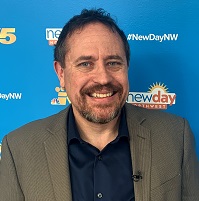
Scott Ransom,
Industry co-Lead, CMaT
Dr. Ransom has been involved in the ERC program for almost a decade, first as the Director of Industry and Innovation at the Center for Neurotechnology, during which time he grew the program over 700%. He also taught Neural Engineering Tech Studio at the University of Washington, and serves on the boards of two startup companies spun out from the center as well as cofounding a startup of his own. Now he is the Industry co-Lead for the Center for Cell Manufacturing Technologies based at the Georgia Institute of Technology while also supporting Industry Development at the Marcus Center for Cell Manufacturing. He has consulted for NSF as well as NIH, and prior to joining the ERC program spent nearly 20 years at Medtronic, the world’s largest medical device manufacturer, where he worked in a variety of roles from R&D and clinical to leading Physician Education for AF Solutions. He lives in Seattle, WA with his wife and children.
Keisha Varma
EWD Lead, ATP-Bio
Committee Liaison:
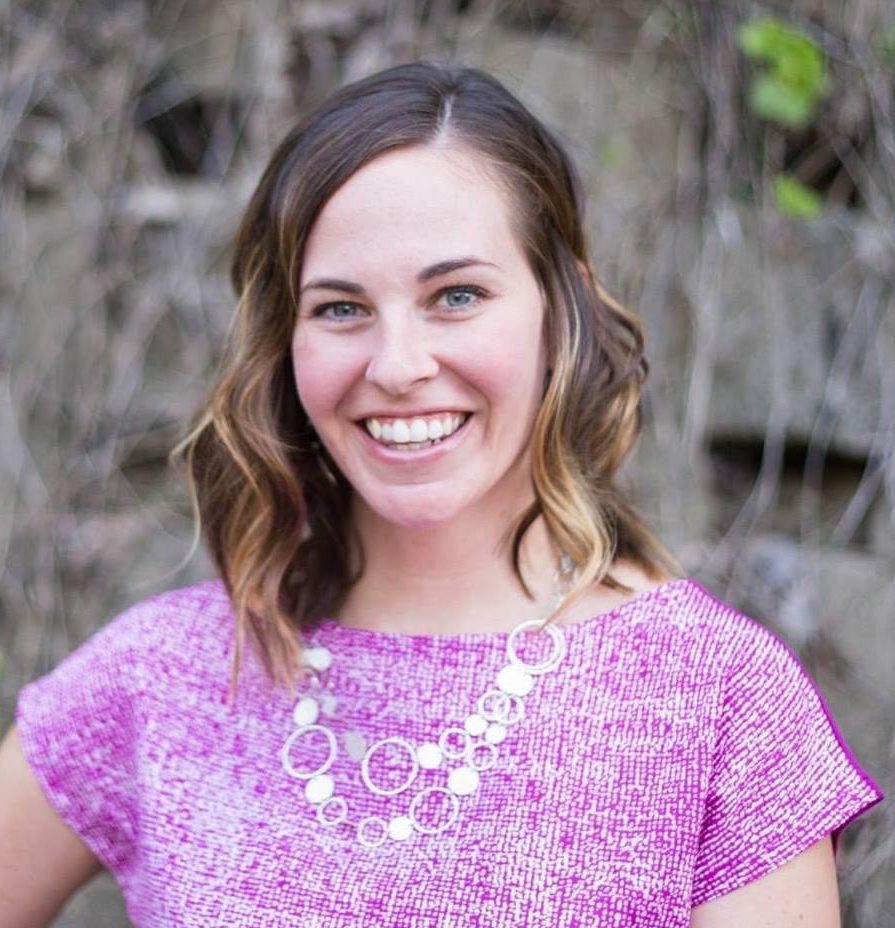
Erin Steigerwalt
Senior Manager, Learning Services, ASEE
Erin Steigerwalt, Senior Manager, Learning Services, has been with ASEE since 2009. In her current role, she oversees the planning and execution of educational programs and initiatives to the engineering education community, including face-to-face and virtual professional development opportunities and conferences. In her previous positions in ASEE, she served as a Program Manager for multiple government programs, including NSF’s Graduate Research Fellowship Program. Before joining ASEE, Erin served as a Community and Youth Education Volunteer in the Peace Corps.
